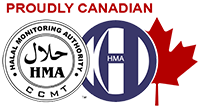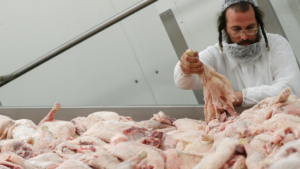Halal meat is one of the top priorities for worldwide consumers since it promotes a healthy lifestyle. Consumers are becoming more concerned about the food they eat in terms of food safety, health, naturalness, enjoyment, convenience, information, ethical considerations, and environmental friendliness. The idea behind food safety is to have high-quality meat and keep it from being infected and becoming unsafe to consume. According to the World Health Organization (WHO), millions of cases of foodborne illness occur each year. Researchers have found more than 250 foodborne illnesses, most of which result in infections because they are brought on by various bacteria, viruses, and parasites. Harmful poisons and chemicals can also bring on meat contamination and foodborne diseases.
Several nations like Canada have established improved monitoring systems like HMA in Canada to manage foodborne illnesses and maintain food safety. It seems doubtful that the prevalence of foodborne illnesses will continue to rise yearly. Several elements might affect food safety. Longer distribution networks and novel food storage techniques are some of them, as well as advances in farm-based food production, food processing in industries and restaurants, and food stalls. Food contamination will undoubtedly have more potential as processing chains get longer. Many indications or measures are employed concurrently to determine the quality and safety of the food.
There are over 1.6 billion Muslims throughout the world, and the majority of them are Orthodox Muslims who, at the very least, adhere to stringent halal dietary laws. Halal foods are those that are permissible to consume according to the Quranic law. Islamic law permits any dietary items unless expressly forbidden by the Quran or Sunnah. Haram is a phrase for goods that are prohibited.
The Holy Quran and Hadith are the principal sources of Islamic law. Hence its fundamental tenets are unchanging and clear. Even though there are Muslims everywhere, there may be variations in how Islamic law is understood and applied, affecting how different modern cultures perceive and interpret the term “halal,” particularly concerning what is permitted during halal slaughter.
The halal certifying body in Canada,HMA Canada, has a list of requirements for Toronto Halal food that must be fulfilled: the slaughterer and Muslim halal inspector must both be practising Muslims who are of sound mind. And over the age of puberty, the slaughtering knife or blade must be sharp and clean; the trachea, esophagus, carotid arteries, and jugular veins must be severed; and death must be verified before any further processing takes place.
There are three requirements for stunning to be approved. First off, a qualified Islamic authority or halal certification body should frequently oversee the usage of the stunning apparatus under the supervision of a trained Muslim supervisor or slaughterman. Second, the stunning must be brief and not result in the animal’s death or permanent harm; as a result, it must be reversible. Thirdly, halal animals should never be subjected to the same technology that shocks pigs. For imported halal meat Toronto, Canada only permits pneumatic, non-penetrative stunning.
In addition to enforcing industrial site hygiene standards, HMA monitoring enforces strict private sanitation requirements. All certified items have the distinctive HMA certification mark attached for marketing and advertising purposes. The Halal Monitoring Authority’s backing offers continuing guidance and a successful Halal marketing plan. Fulfill your duty to look into and guarantee genuine Halal to customers in an era of excessive deception and bogus Halal labeling. As strict requirements are adopted in its certification procedures, such as manual non-stunned or monitored slaughter, all Muslims would uniformly accept HMA-approved goods. While protecting the privacy of business trade and product information, accreditation and certification are supplied.
Halal is one of the comprehensive quality control methods used to monitor the methods used to handle, store, and process food as well as all the substances used in those operations. The halal principles enhance the food safety requirements set out by international health authorities, giving them a competitive edge in global markets.
Muslim customers are demanding more and more assurances that the food and drinks being produced have been thoroughly prepared by Islamic guidelines from the very beginning of the manufacturing process. Industries that produce food need to be attentive when utilizing or locating halal materials. The makers should take the initiative to discover where and how the ingredients come from.
Marketers and importers of produced food items with the halal emblem must verify that the halalness of the products they bring into the nation is guaranteed. The halal principles and the significance of such principles in food preparation and processing must be made clear to food product manufacturers. The integrity of those working in the food manufacturing industries and not just printing any particular logo on the food product are the only ways that halal processing can be improved. This includes better comprehensive monitoring by the certified authorities as well as the integrity of those involved.as s




